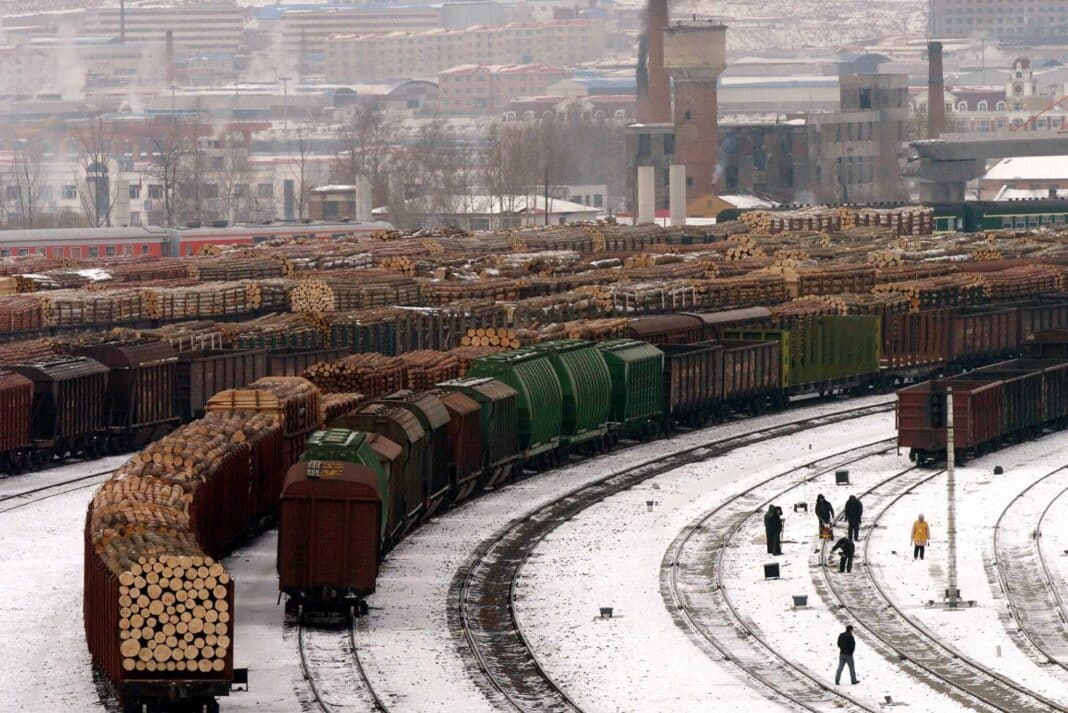Belarusan timber traders are piling into Azerbaijan and are now using the former Soviet state as a trading post to push timbers into the EU and the wider Eurasia region.
It comes as Wood Central reported last month that Russian importers were using Uzbekistan – Russia’s second-largest importer of softwoods – as a launching pad to bypass Western sanctions and repair a 25% drop in Russian exports since the start of the Ukraine conflict.
Belarus state media reports that exported timber was the main contributor to the sanctioned country’s blossoming trade with the satellite state – located on the border of Eastern Europe and Western Asia in the Southern Caucasus.
“Over the past year, more than 301,000 cubic meters of Belarusian timber were sold to the Azerbaijani market, almost six times more than in 2022,” Belaurus media said before continuing that Azerbaijan now ranks second only to China for export trade.
Since early 2022, western sanctions on Russian and Belarussian trade have limited the export of pulp, paper and softwood to nine countries – China, Kazakhstan, Belarus, Uzbekistan, Iran, Kyrgyzstan and the United Arab Emirates and Azerbaijan with Wood Central reporting that Russian timber continues to infiltrate global supply chains.
In recent years, China has invested heavily in Azerbaijan, leading Ali Cavad oghlu Ahmadov, Azerbaijan’s Deputy Prime Minister, to say that his country “was China’s key trading partner in the South Caucasus region” and a springboard for China into Russia’s sphere of influence.
For its measure, Azerbaijan is right in the middle of China’s ‘Middle Corridor’, a new Silk Road carrying goods from China to Europe. After a lull in the pandemic, the Middle Corridor has opened ‘new horizons for development’, with the EU and China creating new transport links that bypass Russia (and Belarus).
The move to push timber exports through Eurasia border states comes as Russia and Belarus have further strengthened their “timber alliance.”
Following the departure of Western Companies, Russia has turned to Belarus, China, South Korea and the Middle East to replace relationships with “unfriendly economies.”
Komi, Russia’s second-largest state and home to Europe’s Virgin Komi Forests has been amongst the hardest hit Russian states by the EU sanctions imposed on Russian forest products entering European markets, with timber production accounting for 30% of the local economy.
“For us, as a republic with a very high percentage of timber processing, it is essential to switch to logging equipment from the Republic of Belarus,” according to Vladimir Uiba, the Governor of Komi.
“Until now, we imported all the equipment from the now unfriendly countries. It is crucial for us that this industry works seamlessly.”






